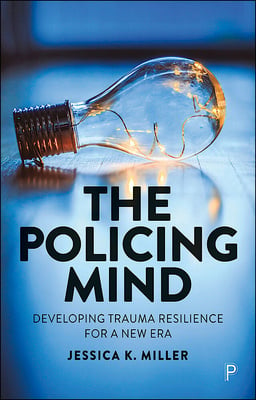Over a decade of research for my first book, The Policing Mind, revealed to me the machinations of human minds put in extraordinary situations on a daily basis. What I didn’t expect was to discover my own.
There is a phrase in academia that may make you cringe: ‘research is me-search’. Yet, there is a reason it exists: many of us embark on careers that resonate with us somehow (otherwise why would we choose them, right?) The difference is that when you undertake research, the idea (one would hope) is to find out stuff. However, the stuff a researcher finds out isn’t always guaranteed to be what they were looking for. Sometimes, the stuff is information, sometimes it’s more questions. If a researcher chooses a subject area that touches on their own life experience, view or mentality (even in the smallest, most subtle or even abstract way), the new information they glean (or question they ask) has a good chance of changing their relationship with that life experience, view or mentality. This can be massively challenging – and we have a choice: explore it or ignore it.
Having been brought up in the 80s amid miners’ strikes and Hillsborough, aggressively drug-searched in the 90s, and then thrown into a warm police family through my work in emergency planning in the early 2000s, my understanding of policing culture was both shamefully narrow and confusingly contradictory. Dedicated time spent with individuals and teams (be it undertaking neuropsychological experiments in a lab, job shadowing in the back of a patrol car or listening in quietness to stories of unfathomable trauma exposure over tea) revealed some qualities that could be construed as constituents of a ‘culture’. One such constituent is the police service’s love affair with evidence bases on the one hand, and, on another, its pathological fear of feeling the human suffering in which much of the day job is immersed. But, the biggest lesson for me was that policing culture changes, and right now, it’s in flux.
It may go without saying that the global pandemic has changed how we think about a heck of a lot, including how we think about how we think. There are those for whom Brexit had already tested their tolerance of ‘experts’, just in time for our faith in science to be pushed to its limit. There are those who pride themselves on being open minded and sensitive to difference (also known as ‘woke snowflakes’). And, there are those for whom a state of limbo between chaotic changes in rules and the stasis of lockdown(s) called on them to embrace the value of silence and stillness to get some perspective on what their life means to them. So, what about police? What about the policing mind? What about the minds of those who support them (and those who simply love to hold strong opinions about them)?
The last few years have seen a backlash against misogyny and racism in the police service and sport – and quite rightly. There is much to do across society and the wider labour market to stand up and call for respect for fellow humans in the most basic of ways. One question that remains unanswered for me is do we afford the same for police officers and staff? Do we recognise a UK populace of nearly a quarter of a million people in the same way as we aim to do so others? If not, how to start?
If offering this book does one thing, I would hope that it raises questions about how we choose to think, what we choose to observe, in ourselves and in others. Ancient traditions dating back thousands of years (including Buddhism) have advocated regularly checking in with how we think. We now have neuroscience that proves this to be constructive for our performance and happiness. But do we really need this? Or could we just take a moment right now and ask ourselves: what do we think? And who are we to think it?
Dr Jessica K. Miller is consultant for the Royal Foundation, Director of Research at Police Care UK and Principal Investigator in the Department of Sociology at the University of Cambridge.
 The Policing Mind: Developing Trauma Resilience for a New Era by Jessica K. Miller available on the Policy Press website. Order here for £21.99.
The Policing Mind: Developing Trauma Resilience for a New Era by Jessica K. Miller available on the Policy Press website. Order here for £21.99.
Policy Press newsletter subscribers receive a 25% discount – sign up here.
The views and opinions expressed on this blog site are solely those of the original blog post authors and other contributors. These views and opinions do not necessarily represent those of the Policy Press and/or any/all contributors to this site.
Image Credit: LuckyStep48


